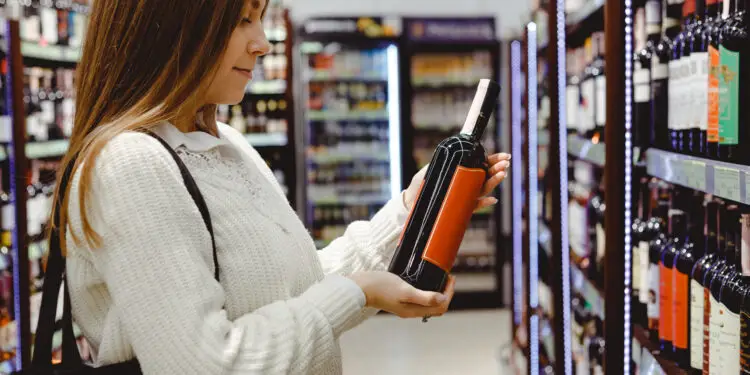Colorado liquor stores are facing new competition from well-financed grocery chains. In 2022, Colorado witnessed a significant shift in its liquor retail landscape. The approval of wine sales in grocery stores introduced a new era of competition for traditional liquor stores.
Colorado grocery stores gained the right to sell full-strength beer on January 1, 2019. Prior to this date, grocery and convenience stores in the state were only allowed to sell beer with an alcohol content of 3.2% by weight (approximately 4% by volume). This change was part of a broader shift in Colorado’s liquor laws, reflecting evolving consumer preferences and market dynamics. The adjustment to the law allowed grocery stores to sell the same full-strength beer that was available in Colorado liquor stores, thereby altering the competitive landscape for alcohol retail in the state.
These developments pose both challenges and opportunities, especially considering that liquor stores retain the exclusive right to sell spirits. Moreover, local Colorado spirits producers, like Felene Vodka, Locke & Co Rye and many others offer higher margins than national brands, presenting a strategic advantage for liquor retailers. In this context, it is crucial for liquor stores to adapt and thrive. Here are the top five strategies they can employ.
- Leveraging Exclusivity in Spirits Sales: Traditional liquor stores hold a unique position as the sole purveyors of spirits in Colorado. To capitalize on this, stores should expand and diversify their spirits selection, particularly focusing on local and craft spirits. By offering exclusive products that can’t be found in grocery stores, such as organic vodka made from fermented sugarcane, stores can attract a clientele seeking unique and high-quality spirits.
- Building Relationships with Local Distillers: Collaborating with local spirits producers offers a dual benefit. Firstly, it supports the local economy and resonates with consumers who prefer locally-made products. Secondly, local distillers often provide better margins than national brands. Liquor stores can negotiate exclusive deals or limited-edition releases with local distillers, creating a unique value proposition for their customers.
- Enhancing Customer Experience and Expertise: Personalized service and expert knowledge can set liquor stores apart from grocery chains. Staff training in various spirits, tastings, and pairing recommendations can transform a simple purchase into an informative experience. Hosting events, like vodka tastings or mixology classes, especially with local distillers, can further enhance customer engagement.
- Utilizing Digital Marketing and E-Commerce: Developing a strong online presence is essential. A user-friendly website with an e-commerce platform allows customers to browse and purchase products from the comfort of their homes. SEO optimization, content marketing, and social media engagement can increase visibility and attract a broader customer base. Emphasizing local and craft spirits in digital content can further differentiate liquor stores from grocery retailers.
- Community Engagement and Partnerships: Building a community presence through local events, sponsorships, and partnerships can create a loyal customer base. Liquor stores can collaborate with local businesses, like restaurants or event venues, to sponsor events or offer exclusive products. Engaging in community projects and charities also enhances brand image and customer loyalty.
The entrance of grocery stores into the wine retail market in Colorado represents a significant shift, but it also provides an opportunity for Colorado liquor stores to reposition and strengthen their business model. By focusing on their exclusive rights to sell spirits, building strong relationships with local distillers, enhancing customer experience, embracing digital marketing, and engaging with the community, liquor stores can not only survive but thrive in this new competitive landscape. As the liquor retail market evolves, agility and innovation will be key to success.
- Managing Travel and Mileage Expenses for Employees - December 2, 2024
- How To Get Your Liquor Store to Appear in Google’s Local Search Results - October 4, 2024
- Social Media Marketing on a Budget: Effective Tactics to Reach Your Target Audience - September 20, 2024











